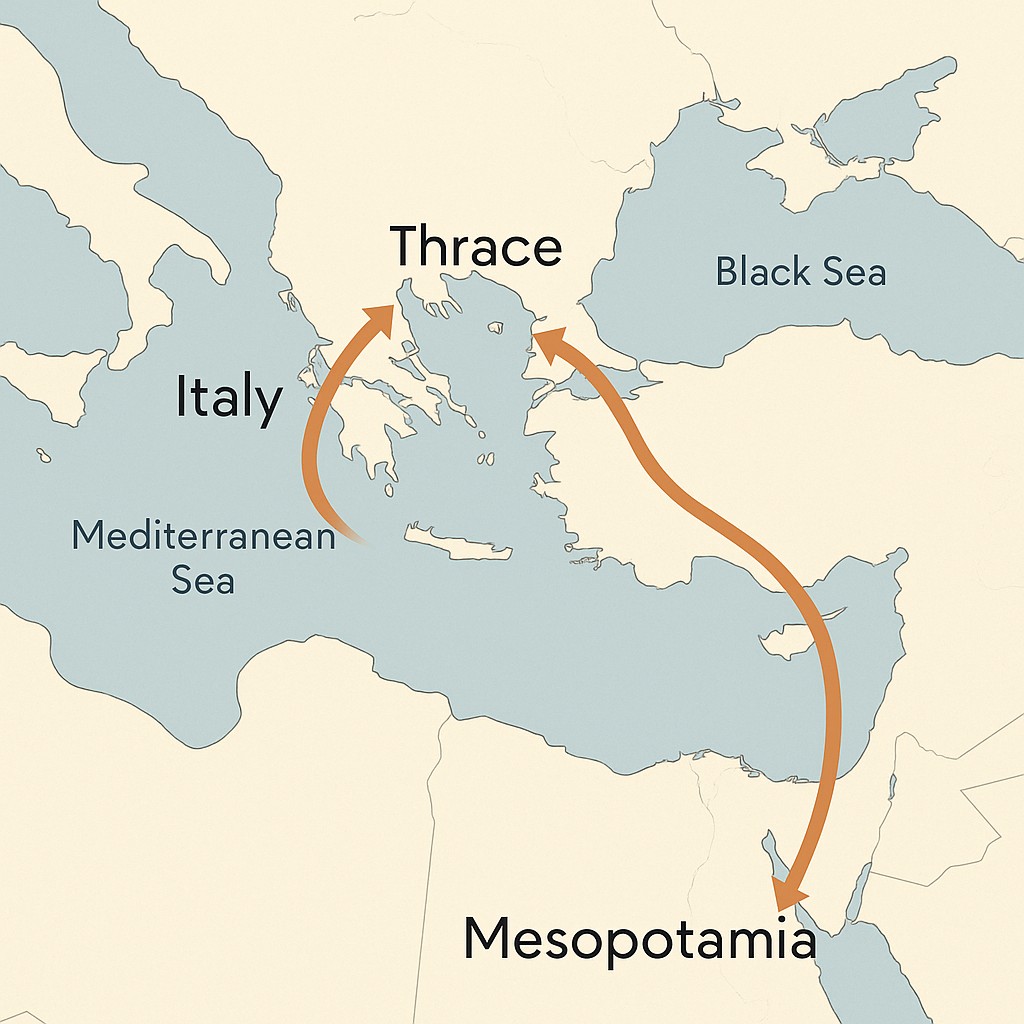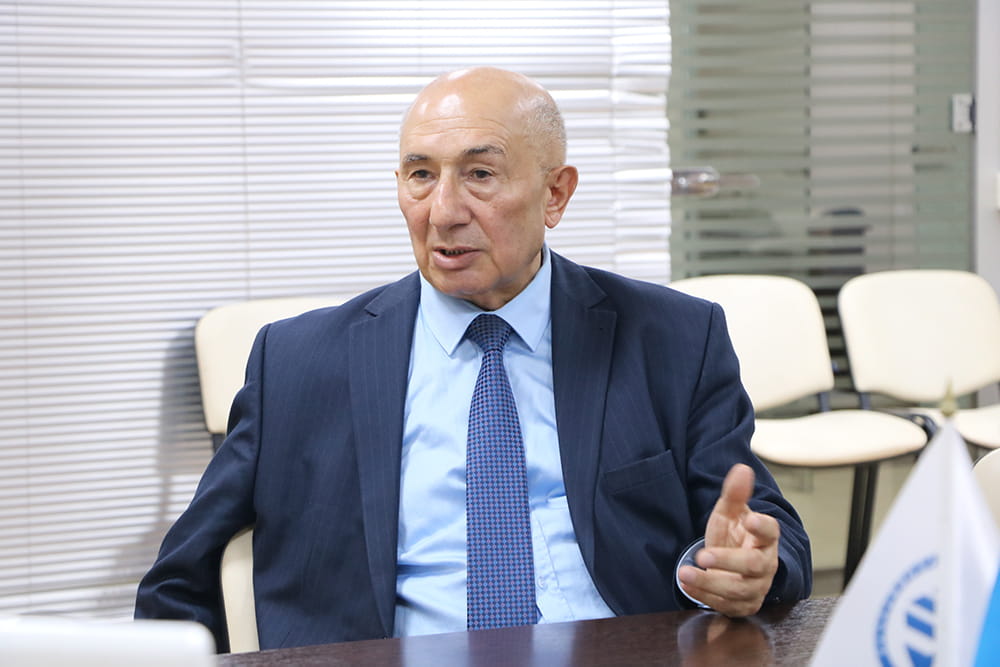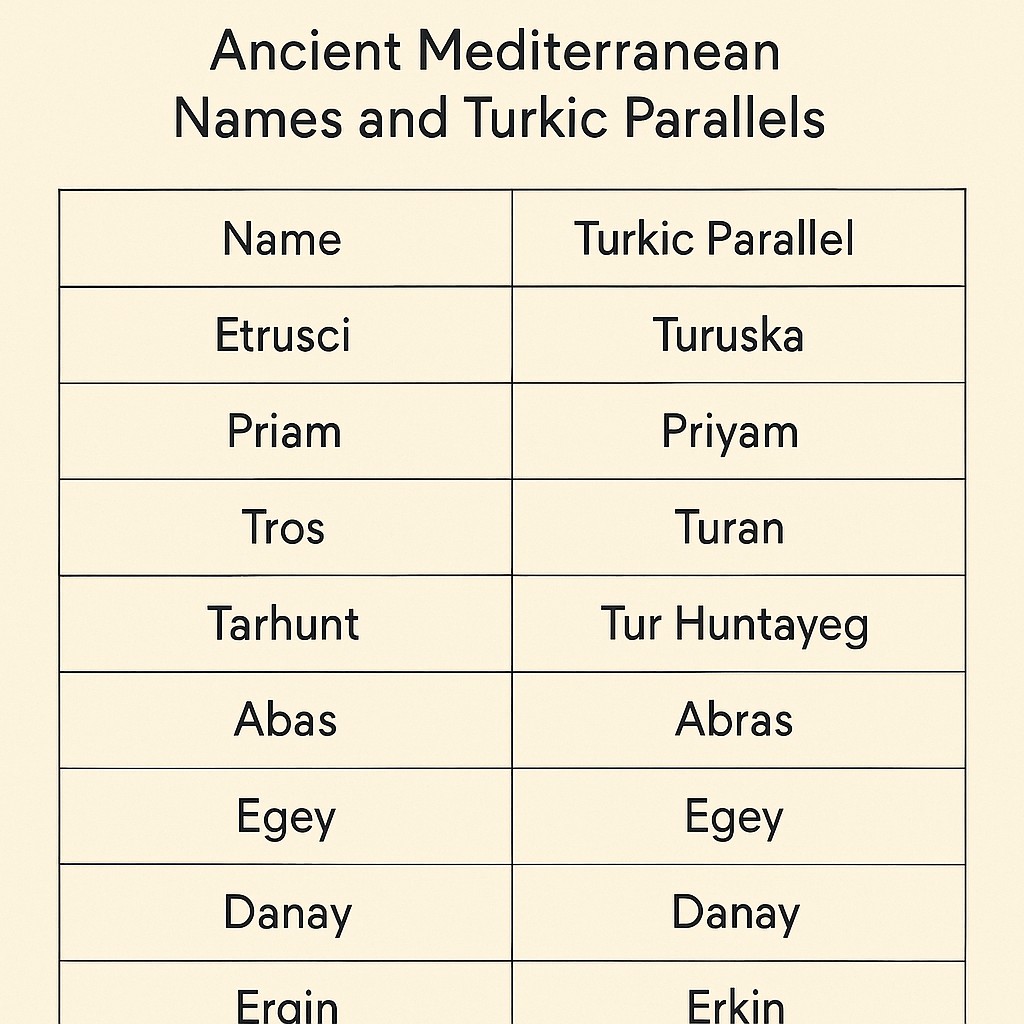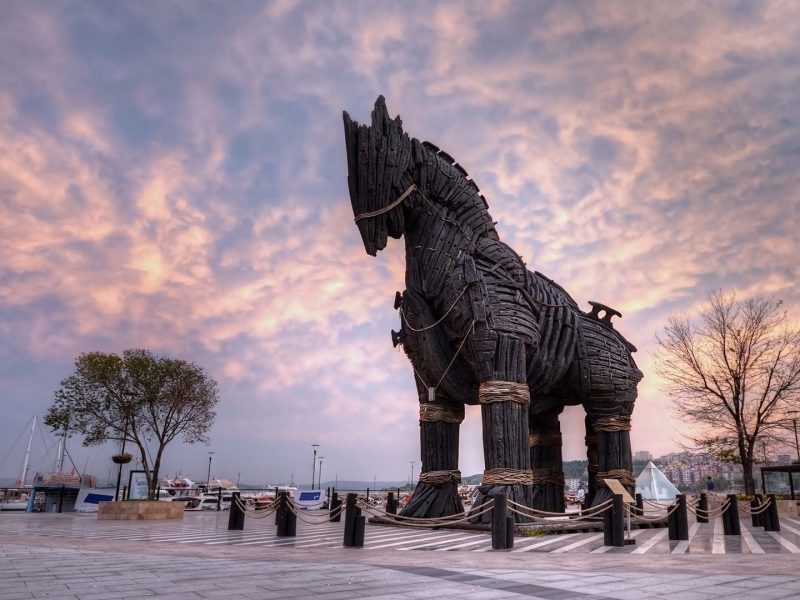Chingiz Garasharly (Professor, Doctor of Philological Sciences) was a prominent Azerbaijani linguist and historian. In his 2011 work “The Turkic Civilization Lost in the Mediterranean Basin”, Garasharly offers a radical rethinking of Mediterranean prehistory: one where Turkic roots of peoples were not only present, but foundational.
The Thesis: Turks as Early Mediterranean Civilizers
Garasharly challenges the mainstream idea that Turkic peoples emerged in Central Asia and arrived in the Mediterranean only in the Middle Ages. Instead, he proposes:
- Turkic peoples, including Pelasgians and Trojans, were part of early migrations from Mesopotamia to the Mediterranean.
- Etruscan language and writing contain recognizable Turkic elements.
- Old Greek and Latin have substrata influenced by Turkic grammar and vocabulary.
“The Trojans and Etruscans were Turks… as described by ancient sources and evidenced in the onomasticon.” Garasharly
Etruscans: The Lost Turkic Kingdom?
One of the most compelling sections of Garasharly’s work focuses on the Etruscans, the mysterious pre-Roman people of Italy. He argues:
- The name Tursci (Latin for Etruscans) is linguistically linked to Turuska, Turukki, and other ancient ethnonyms for Turks.
- The Etruscan language can be interpreted using Chuvash and Old Turkic phonetics.
- Words like thesan (“radiance”) match Turkic roots such as yashin and thithen.

Trojan Legacy: A Turkic Roots Tale?
Garasharly ties together Trojans, Thracians, and Pelasgians as branches of a broader Turanian civilizational family:
- Ancient names like Priam, Tros, and Dardan have parallels in Turkic epics and languages.
- Scandinavian sagas refer to Trojans as “Turks,” claiming they migrated north after Troy’s fall (which is actually in line with the theory of Thor Heyerdahl, that the ancestors of Scandinavian people came from Caucasus, from territory of Azerbaijan).
- Even names of Greek gods, cities, and rivers (e.g., Thalassa, Selenga, Ataman) may have Turkic roots.
Language as Evidence: Nostratic Foundations
Garasharly uses Nostratic linguistics to support his thesis, showing deep structural links between Turkic, Indo-European, Uralic, and Semitic families:
- Pronouns: mon, ton, son (French) vs. men, sen (Turkic)
- Lexical parallels: Latin voco (“to speak”) and Turkic oki
- Phonetic shifts traceable to Proto-Turkic roots

Chingiz Garasharly
Pelasgians and Thracians: More Than Neighbors
The Pelasgians, described as pre-Greek settlers, share:
- Names like Abas, Egey, Danay, and Ergin, all with Turkic equivalents
- Toponyms and hydronyms (Selenga, Tartar, Aral) common across Turkic lands
- Common traits in mythology and dynastic naming conventions
Scholarly Impact and Controversy
Garasharly’s work defies academic orthodoxy by arguing that Turkic peoples were essential to early Mediterranean history:
- Urges a revaluation of ancient European and Near Eastern ethnogenesis
- Suggests Turkic civilization influenced Etruscan and Greek development
- Bases conclusions on a blend of European sources and Turkic philological research

Final Thoughts: A New Chapter in Ancient History
The Turkic Civilization Lost in the Mediterranean Basin offers a bold thesis: the ancestors of today’s Turkic peoples were key architects of Mediterranean civilization. Whether one accepts or questions it, Garasharly’s work opens exciting avenues for rethinking the cultural mosaic of antiquity.
Access the full PDF: Read Garasharly’s Original Work

